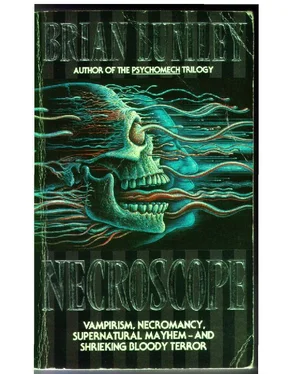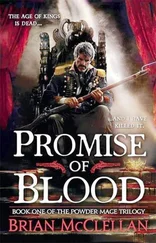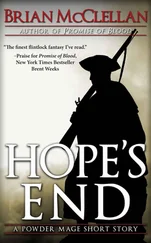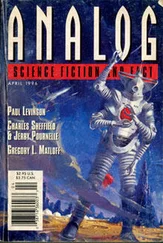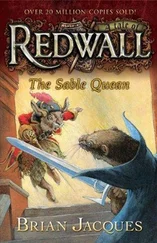'Oh, yes-years ago.'
'So you and I, we're the only ones who know anything at all about Faethor Ferenczy?'
Giresci peered at the younger man. Dragosani's voice had sunk so low that it was little more than a growl, almost sinister. There seemed something wrong with him. Even under Giresci's questioning gaze he gave himself another shake, rapidly blinking his eyes.
That's right,' Giresci answered, frowning. 'I've told no one else in — oh, longer than I can remember. No point telling anyone else, for who'd believe? But are you all right, my friend? Are you well? Is something bothering you?'
'Me?' Dragosani found himself leaning forward, as if drawn towards Giresci. He deliberately forced himself upright in his chair. 'No, of course not. I'm a little drowsy, that's all. My meal, I suppose. The good food you've served me. Also, I've driven a long way in the last few days. Yes, that's it: I'm tired.'
'You're sure?'
'Yes, quite sure. But go on, Giresci, don't stop now. Please tell me more. About Ferenczy and his forebears. About the Ferrenzigs. The Wamphyri in general. Tell me anything else you know or suspect. Tell me everything.'
'Everything? It could take a week, longer!'
'I have a week,' Dragosani answered.
'Damn, I believe you're serious!'
'I am.'
'Well now, Dragosani, doubtless you're a nice enough young fellow, and it's good to talk to someone who's genuinely interested and knows something about one's subject — but what makes you think I'd care to spend a whole week like that? At my age time's important. Or maybe you think I have the same kind of longevity Ferenczy had, eh?'
Dragosani smiled, but thinly. On the point of saying, you can talk to me here or in Moscow, he checked himself. That wasn't necessary. Not yet, anyway. And it might let Borowitz in on his big secret: how he came to be a necromancer in the first place. 'Then how about the next hour or two?' he compromised. 'And, since you've suggested it, we can start with Ferenczy's longevity.'
Giresci chuckled. 'Fair enough. Anyway, there's whisky left yet!' He poured himself another shot, made himself comfortable. And after a moment's thought:
'Ferenczy's longevity. The near-immortality of the vampire. Let me tell you something else the Widow Luorni
said. She said that when she was a small girl, her grandmother had remembered a Ferenczy living in the same house. And her grandmother before her! Nothing strange about that, though — son follows father, right? There were plenty of old Boyar families round here whose names went back to time immemorial. There still are. What's strange is this: to the Widow's knowledge there had never been any female Ferenczys. And how does a man pass on his name if he never takes a wife, eh?'
'And of course you looked into it,' said Dragosani.
'I did. Records were scarce, however, for the war had destroyed a great deal. But certainly the house had been the seat of the Ferenczys as far back as I could trace it, and never a woman among 'em! A celibate lot, eh?'
Without understanding his outrage, Dragosani suddenly felt that he himself had been insulted. Or perhaps it was only his natural intelligence which felt slighted. 'Celibate?' he said stiffly. 'I think not.'
Giresci nodded. In fact he was well aware of the Wamphyri's rapacious nature. 'No, of course not,' he confirmed Dragosani's denial. 'What? A vampire celibate? Ridiculous? Lust is the very force that drives him. Universal lust — for power, flesh, blood! But listen to this:
'In 1840 one Bela Ferenczy set off across the Meridionali to visit a cousin or other relative in the mountains of the northern Austro-Hungarian borders. Now this much is well documented; indeed, old Bela seems to have gone to a deal of trouble to let people know he was going visiting. He installed a man to look after the place while he was away — not a local man, incidentally, but someone of gypsy stock — hired a coach and driver for the early stages of the journey, made reservations for connections through the high passes, and completed all of the preparations necessary to travel in these parts in those days.
And he put it about locally that this was to be a journey of valediction. He had seemed to grow very old very quickly in the last year or two, and so it was accepted that he went to say his last farewells to distant relatives.
'Now remember, we were still very much Moldavia-Wallachia at that time. In Europe the Industrial Revolution was in full swing — everywhere but here! Insular as ever, we were so backward as to seem almost retarded! The Lemberg-Galatz railway, skirting the mountains, was still more than a decade away. News travelled extremely slowly, and records were hard to keep. I mention this to highlight the fact that in this case there was good communication, and that a record did survive.'
'Case?' Dragosani queried. 'What case are you talking about?'
'The case of Bela Ferenczy's sudden death when his coach and horses were hurled into a precipice by an avalanche in one of the high passes! News of the "accident" got swiftly back here; the old man's Szgany retainer took Ferenczy's sealed will to the local registrar; the will was posted without delay, showing that the Ferenczy house and grounds were to pass to a "cousin", one Giorg, who had, apparently, already been appraised of the situation and his inheritance.'
Dragosani nodded. 'And of course this Giorg Ferenczy later turned up and took possession. He would be — or he would appear to be — younger far than Bela, but the family resemblance would be unquestionable.'
'Good!' Giresci barked. 'You follow my reasoning precisely. Having lived here for fifty years, which would normally make him an old man, Bela had decided it was high time he "died" and made way for the next in line.'
'And after Giorg?'
'Faethor, of course,' Giresci scratched his chin reflectively. 'I've often wondered,' he said, 'if I had not killed
him on the night of the bombing — if he had survived that night — what his next incarnation would have been? Would he have shown up after the war in some new Ferenczy guise, to rebuild the house and carry on as before? I think the answer is probably yes. They are territorial, the Wamphyri.'
'And so you're convinced that Bela, Giorg, and Faethor were all one and the same?'
'Of course. I thought that was understood. Didn't he tell me as much himself, when he raved of the battles at Silistria and Constantinople? And before Bela there was Grigor, Karl, Peter and Stefan — oh, and the Lord knows how many others — all the way back to Faethor Ferrenzig the princeling and probably beyond! This was his territory, do you see? He held bloody dominion here. And in the olden times, as princelings or Boyars, my God but the Wamphyri were fierce about their holdings! That was why he joined the Fourth Crusade, to keep olden and future enemies off his lands. His lands, you understand? No matter what king or government or system is in power, the vampire considers his home ground to be his. He fought to protect himself, his monstrous heritage, and not for a mangy pack of scummy foreigners out of the West! You've seen the defaced Crusader cross on the reverse of my medallion — hah! When they dishonoured him he scorned them, spat on them!'
'And have you actually traced his name that far back? To Constantinople, I mean, in 1204?' Something of his awe of the vampire — or his envy? — was evident in Dragosani's voice.
Giresci cocked his head a little on one side; 'Dragosani, how's your history?'
'Hardly brilliant. Fair, I suppose.'
'Hmm! Well, many names came down from the Fourth Crusade, but you'll be hard put to find a Ferenczy or Ferrenzig amongst them. He was there, though, be sure of it! How do I know? Well, it's possible that you're talking to the world's foremost authority on that particular bloodbath, and I've discovered things which I'm sure many other historians have overlooked. Of course, I had the advantage of knowing what I was looking for — my objectives were specific — but in the process of tracking down the vampire I've naturally covered a deal of extraneous ground. Man, I could write a book on the Fourth Crusade — certainly from Hungary to Constantinople! And talking of Constantinople: Lord, what a hell that must have been! What a battle! And sure enough, right there in the thick of it — wherever the fighting raged fiercest — there was this man and the brutish horde he commanded. He was there too when the city fell, when he and his band of mercenary berserkers rampaged, utterly out of control. Yes, and his excesses spread like a cancer; the entire army joined in; they raped, pillaged and massacred for three long days…
Читать дальше
